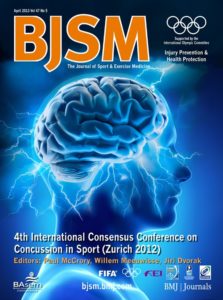Objective: Learning disabilities and/or ADHD are considered to be important risk factors or modifiers for concussion assessment and management. The purpose of this study was to examine cognition and symptom reporting in high school students with academic difficulties or ADHD and compare to those without at baseline.
Design: Retrospective analysis of three measures routinely given as part of a high school yearly concussion baseline protocol. Setting: The library of a high school in Westchester County, NY.
Participants: A sample of 143 high school students who participate in collision/contact sports [Age M (SD)=15.4 (1.2); Boys=78, 54.5%] completed baseline testing.
Main results: Non-parametric tests were used because of violations of normality. High school students with academic difficulties or ADHD (n=21) were compared to controls (n=122) on King- Devick, SAC, ImPACT Cognitive Composite scores, and Total Symptom ratings. Students with LD or ADHD performed significantly more poorly on King-Devick (p=0.003; d=0.79), Visual Motor Speed Composite of ImPACT (p=0.007; d=0.79), and reported more symptoms at baseline on the Post-Concussion Scale (p=0.005; d=0.59). No significant differences found between groups on SAC (p=0.11; d=0.36) or ImPACT Verbal Memory (p=0.54; d=0.16), Visual Memory (p=0.20; d=0.26), or Reaction Time (p=0.14; d=0.55) Composites.
Conclusions To our knowledge this is the first study to examine performance on three different baseline measures. High school students with academic difficulties or ADHD performed more poorly on King-Devick, the Visual Motor Speed Composite of ImPACT, and reported more symptoms at baseline. Findings suggest these students need to be monitored for specific post injury changes.
Summary Points:
- High school athletes with learning disability and/or ADHD performed worse on K-D Test at baseline compared to controls.
- This highlights the importance of establishing an individual pre-injury baseline for comparison during concussion screening and recovery monitoring.
- Additionally, the study supports a prior study demonstrating the eye movements may be impacted by neurological changes associated with ADHD.

